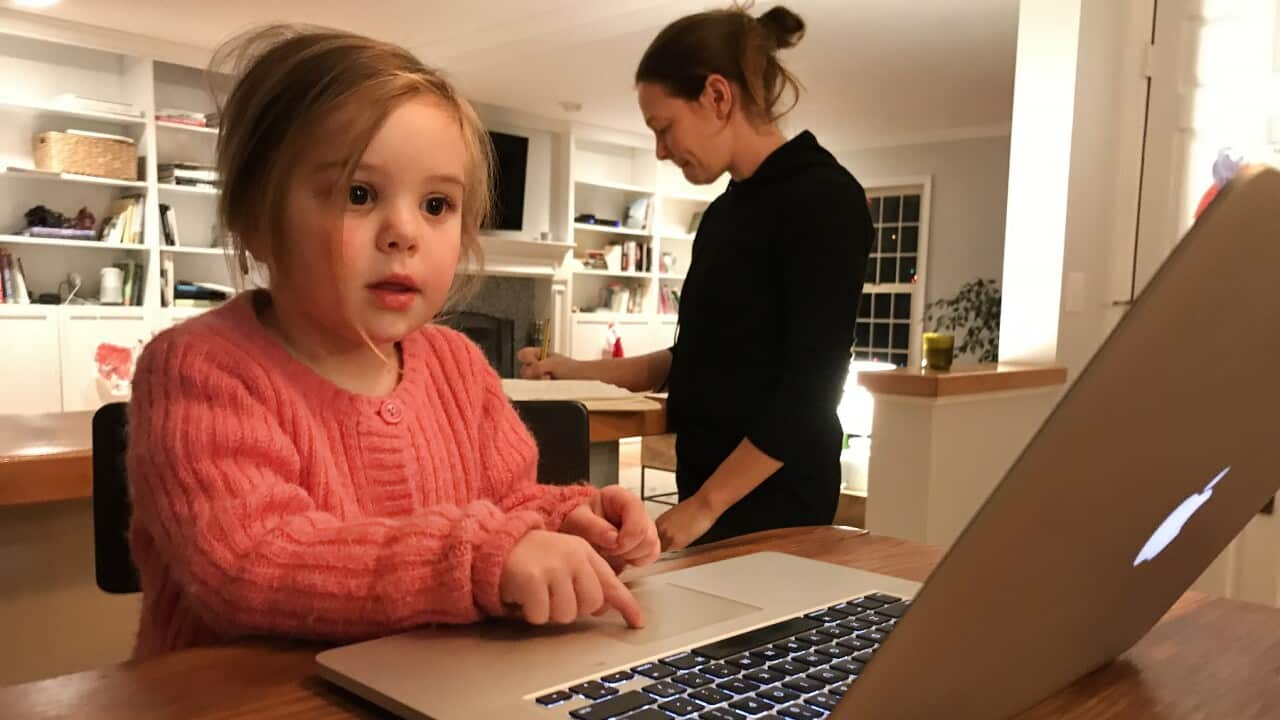TRANSCRIPT
Two-year-old Saoirse loves the outdoors and so her mum, Sophie, regularly takes her her to open-air playgroups.
Keeping her daughter occupied indoors is the challenge.
"When I keep her at home and she gets bored, that's really hard to keep her away from the TV or the cell phone. So what I do, is we go out every day. She's an outdoor girl."
Like most parents, Sophie tries to limit the use of electronic devices but she says it's not easy.
"I try to avoid it as much as I can but I can't avoid it completely. I think it's good for carers because we need a break sometimes."
So what impact, if any, is screen usage having on toddlers?
A new study suggests it could be interfering with their language development.
The research was led by Telethon Kids Institute Senior Research Officer Dr Mary Brushe.
"Screen time is getting in the way of those early language experiences - so the amount of adult words children are hearing and the amount of conversations they're having."
Ms Brushe and her team tracked 220 Australian families over two-and-a-half-years.
The children wore devices – similar to a fitbit – that measured the amount of electronic noise and the sound of parent-to-child conversations
They were worn for 16 hour periods when the children were aged 12 months, 18 months, two, two-and-a-half, and three years old.
"The average 3 year old in our study was actually being exposed to roughly three hours of screen time each day.And so when we estimated that out, they could be missing out on more than 1100 adult words, over 800 child words themselves and engaging in just under 200 fewer conversations with their parent."
The researchers are warning parents to be aware of so-called 'technoference' - when screen time limits a child's ability to talk, interact and develop new skills.
So how much is too much?
The national guideline says children under two should have no ((zero)) recreational screen time.
Less than one hour per day is the recommendation for those aged two to five, while two hours is the daily limit for five-to-17 year-olds.
The feedback from parents, Ms Brushe says, is that in today's world, that's unrealistic.
That's a key reason she and her team carried out the study.
"We don't want screen time to become another thing parents are made to feel guilty about. We really want to focus on ways parents can chose to bring screen time into their life if they want to, but find healthier ways to do so. "
Not all screen time is bad, says Kathryn McKinley - she's the President of Speech Pathology Australia.
"There are certain ways you can interact on screens with your child so they are not just sending time looking at screens and not interacting. So talking about what it is you're seeing, what's happening on the screen, showing interest and having a conversation."
Ms McKinley says about 20 per cent of children are starting school with delays in language and literacy.
Her advice for parents is to create language-rich environments in the early years.
"Talking to your child, playing, singing, reading and print is really important part, so through books but also through looking at signs and writing shopping lists, looking at packets in the supermarket."
The researchers will continue to track the families into the future to monitor the impact of screen time during schooling.













